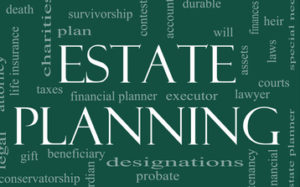Estate Planning Lawyer
 Estate Planning Lawyer. When would most people ever need an estate planning lawyer? For the average person, the only time that they would need a lawyer is to help them set their will. The will consist of two parts, the first is after you die. All of your assets are distributed to the people who you love and have left behind. The second part is what is called a living will. In most cases, this is where you advise people how you want to be looked after while you’re still alive and can’t do it yourself. You also name someone as the person who will make the decisions for you while you’re still alive and administer all of your assets.
Estate Planning Lawyer. When would most people ever need an estate planning lawyer? For the average person, the only time that they would need a lawyer is to help them set their will. The will consist of two parts, the first is after you die. All of your assets are distributed to the people who you love and have left behind. The second part is what is called a living will. In most cases, this is where you advise people how you want to be looked after while you’re still alive and can’t do it yourself. You also name someone as the person who will make the decisions for you while you’re still alive and administer all of your assets.
Estate Planning Lawyer – Assets?
All of your assets that are included in your will are considered your estate. For people with small estates, it is pretty simple and straightforward. All of their assets will go to their children or their wife or someone who they have named in the will. People with large estates will need to do more planning and this is where estate planning lawyers may be useful in helping them set up their estate in such a way that all of their descendants are looked after in the manner they wish.
They may want to include a family trust, which generates income for them or for the estate and then distributes this income to those people who are named as part of the family trust. They may use the estate planning lawyer to administer the estate for the trust with the input of the family who is receiving benefits from the trust.
Choosing an Estate Lawyer
The estate planning lawyer should be chosen very carefully. It should be someone who has knowledge about setting up the estate and about setting up trusts for your family. It should also be someone you trust who will do a good job and make sure that the estate is managed properly. After all, your family and your descendants and dependents will need to exist based on the income from your estate.
Some people will use a lawyer to draw up the terms of the estate plan. They will have a 3rd party actually administer the estate. This 3rd party could be a family member or it can be someone totally unrelated to the family. There are also companies that administer estates. However, they do charge fees for this sort of thing and they can be quite costly. However, if you have a large estate and it is a complicated affair, you may want to hire experts to do this management for you.
Avoid Family Member Friction
It reduces the friction between family members if something is not executed properly. A 3rd party is often a good arbitrator. Conflict can arise when one family member does not agree with the will. Or they may not agree with the manner in which the will or the estate is being managed. Many people unfortunately just want the money and to get on with their lives. If this is what you intend and desire, then by all means just give it away. However, there are tax consequences and there are family management issues that many lawyers and accountants can assist with when it comes to planning one’s estate. We suggest that readers take the time to investigate the details. Talk to experts to make sure that you are in fact setting up your estate in the proper manner.
Your estate is intended to provide money to look after you while you are still alive. You will need to make sure that it is being managed by someone who is 100% trustworthy. Money can corrupt even the closest family. This sometimes comes as a large surprise to many people. One way to manage this issue is to have two or three people in charge. No one person is able to make any decisions independently. The obvious negative is that sometimes it is much more difficult to make decisions if they do not agree on issues.
You can follow any responses to this entry through the RSS 2.0 feed. You can leave a response, or trackback from your own site.
November 14th, 2015 at 2:13 pm
You do not need to register a bsinuess if you are the sole proprietor. You are merely a private contractor, like a handyman, doctor, author, etc.You have to report income to Revenue Canada as a self-employment income, which means tracking income and expenses, declaring the difference as self-employment income, etc. You will need to apply for a GST number, and if you earn more than $30,000/year you need to charge GST to Canadian customers and remit this quarterly.However, if you don’t set yourself up as either an incorporated or limited company you pay personal income tax rates (rather than lower corporate rates), and you are personally liable for debts.